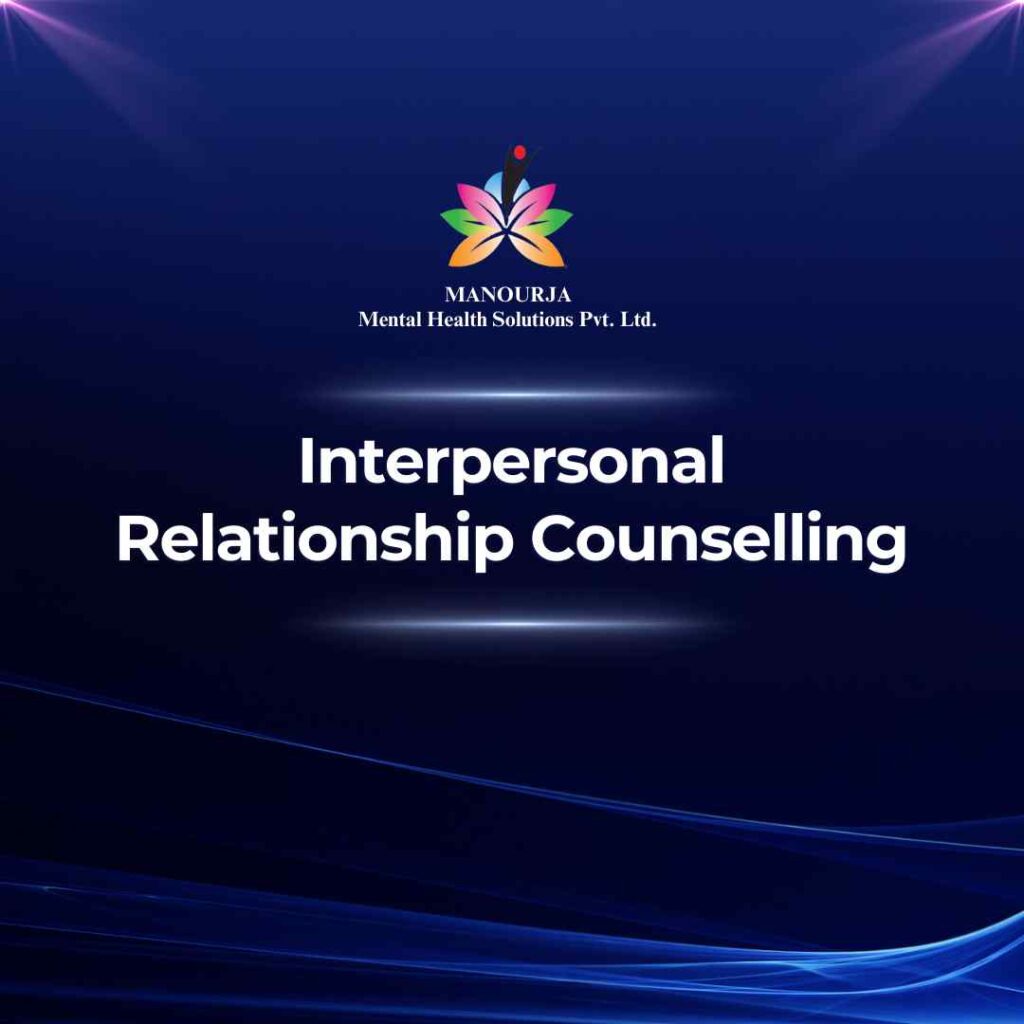Interpersonal Relationship Counselling

Interpersonal relationship problems within a family can manifest as persistent conflicts, misunderstandings, and emotional distance that disrupt the family dynamic. These issues can stem from a variety of sources, including differences in values, communication breakdowns, unresolved conflicts, or significant life changes.
Common Symptoms of Interpersonal Relationship Problems Include
- Frequent Conflicts: Regular arguments or disputes over issues that may seem trivial or are repeatedly discussed without resolution.
- Communication Breakdown: Difficulty expressing thoughts and feelings effectively, leading to misunderstandings and resentment.
- Emotional Withdrawal: One or more family members distancing themselves emotionally and physically from family interactions, which may indicate discomfort or dissatisfaction with the relationships.
- Lack of Trust: Suspicion or doubt about the motives or actions of family members, undermining the foundation of family relationships.
- Stress and Tension: A general sense of unease or stress within the home, making family gatherings uncomfortable or dreaded events.
- Behavioral Changes in Children: Children in the family may exhibit behavioral issues or changes in performance at school, often as a reflection of the instability at home.
These symptoms can erode the quality of life for all family members, making it challenging to maintain a supportive and nurturing home environment.
How Counselling Effectively Treats Interpersonal Relationship Problems Between Family Members
Counselling offers families a neutral space to explore the complexities of their relationships, understand individual perspectives, and develop healthier interaction patterns.
- Family Therapy: Utilizes various therapeutic techniques to facilitate communication, resolve conflicts, and strengthen family bonds. Approaches like systemic therapy, structural family therapy, or narrative therapy can be particularly effective.
- Conflict Resolution Training: Teaches family members how to address and resolve conflicts constructively, without escalating tension.
- Communication Skills Training: Enhances family members’ ability to express their thoughts and feelings clearly and listen to each other without judgment.
- Emotionally Focused Therapy (EFT): Helps families build emotional awareness and sensitivity to each other’s needs, fostering emotional attachment and understanding.
- Mediation: Involves a counselor helping family members negotiate difficult conversations, ensuring that each member’s voice is heard and considered in finding mutual solutions.
Steps Followed in MANOURJA for Counselling of People with Interpersonal Relationship Problems
- Initial Assessment: Gather detailed information about the nature of the conflicts, individual family members’ perspectives, and the overall family dynamics.
- Goal Setting: Collaboratively establish goals with the family aimed at improving relationship quality and resolving specific conflicts.
- Development of a Personalized Treatment Plan: Create a tailored plan incorporating suitable therapeutic approaches based on the family’s needs and dynamics.
- Regular Counselling Sessions: Conduct structured sessions that allow family members to explore issues, practice new communication skills, and work towards reconciliation.
- Continuous Evaluation and Adaptation: Regularly assess the progress of the therapy, making necessary adjustments to ensure that the family achieves effective and lasting improvements.
Through these Counselling interventions, MANOURJA aims to help families navigate their challenges, enhance their relationships, and create a harmonious and supportive home environment.
“Every sunrise is a new chance to rebuild bridges, deepen connections, and foster love within your family.”
